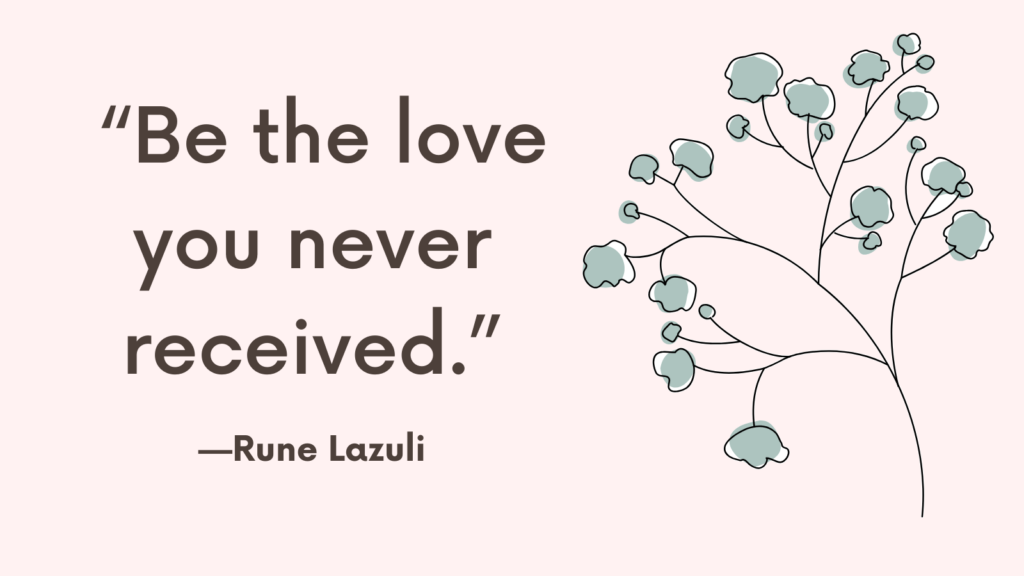Self-forgiveness is a crucial aspect of emotional healing and personal growth.
It allows you to release feelings of guilt, shame, and self-blame, helping you move forward with a renewed sense of self-worth and inner peace.
While it can be challenging, self-forgiveness is essential for mental well-being and a healthier relationship with yourself.
This guide will walk you through the steps to practice self-forgiveness effectively.
Why Self-Forgiveness Is So Hard
We Confuse Accountability With Self-Punishment
You think: If I stop feeling bad, it means I don’t care. But the opposite is true — real accountability leads to growth, not lifelong self-attack.
We Don’t Feel Worthy of Grace
If you were raised in environments that prioritized perfection, mistakes feel like proof you’re unlovable — not just human.
We Fear Repeating the Pain
We believe that if we keep hurting ourselves for what we did, we’ll never do it again. But shame rarely leads to change. It leads to hiding.
Signs You Haven’t Forgiven Yourself
- You replay the same memory or mistake on a loop
- You talk to yourself in harsh, critical tones
- You avoid people or situations that remind you of your actions
- You feel stuck, like you don’t deserve to move forward
- You sabotage good things in your life as punishment
- You don’t allow yourself to feel joy or rest
These are not failures. These are wounds asking to be healed — not ignored.
How to Practice Self-Forgiveness?
Step 1: Acknowledge the Hurt and Pain
Begin by acknowledging the mistake or action that is causing you distress. Recognize the pain or harm it has caused, both to yourself and possibly others.
Acknowledgment is the first step toward healing. It involves facing the reality of what happened and understanding its impact, which is necessary for genuine forgiveness.
Step 2: Accept Responsibility
Take responsibility for your actions or decisions without making excuses or shifting the blame. Understand your role in the situation and why it happened.
Accepting responsibility is crucial for self-forgiveness because it allows you to own your actions and understand that while you may have made a mistake, it doesn’t define your entire character.
Related: Self-Compassion Quiz (+FREE Self-Compassion Resources)
Step 3: Reflect on the Circumstances
Reflect on the context and circumstances surrounding the event. Consider factors such as stress, pressure, or lack of information that may have influenced your actions.
Reflecting on the circumstances helps you understand that mistakes are often a result of complex situations, not just personal failings, which can soften self-judgment.
Step 4: Learn from the Experience
Identify the lessons you can learn from the situation. Ask yourself how you can grow from this experience and what changes you can make to prevent similar mistakes in the future.
Learning from mistakes turns them into opportunities for growth and improvement, making it easier to forgive yourself.
Related: How To Be Gentle With Yourself? Top 5 Ways To Practice Self-Compassion
Step 5: Practice Self-Compassion
Treat yourself with the same kindness and understanding that you would offer a friend who made a mistake. Acknowledge that being human means being imperfect.
Self-compassion helps to counteract harsh self-criticism and promotes a gentler, more forgiving attitude towards yourself.
Step 6: Apologize and Make Amends (If Applicable)
If your actions have hurt others, offer a sincere apology and take steps to make amends. This could involve directly apologizing, repairing harm, or making restitution.
Making amends can help alleviate guilt and demonstrate your commitment to making things right, which is an important part of the forgiveness process.
Related: Best 10 Self Compassion Books
Step 7: Release the Guilt and Shame
Work on letting go of the guilt and shame associated with the mistake. This can be done through journaling, talking to a trusted friend or therapist, or practicing mindfulness and meditation.
Holding onto guilt and shame prevents you from fully forgiving yourself. Releasing these emotions is essential for moving forward.
Step 8: Affirm Your Self-Worth
Remind yourself that one mistake does not define you. Use positive affirmations to reinforce your self-worth and to remind yourself of your inherent value and goodness.
Affirming your self-worth helps rebuild your confidence and self-esteem, which can be eroded by guilt and self-blame.
Step 9: Set Boundaries with Negative Thoughts
When negative thoughts or self-criticism arise, recognize them but don’t dwell on them. Set boundaries with these thoughts by challenging their validity and replacing them with more constructive ones.
Managing negative thoughts prevents them from undermining your self-forgiveness process and helps maintain a positive mindset.
Step 10: Give Yourself Time
Understand that self-forgiveness is a process that takes time. Be patient with yourself and allow the healing to unfold at its own pace.
Forgiving yourself too quickly can lead to superficial healing. Taking the necessary time ensures that your forgiveness is genuine and lasting.
Related: Negative Core Beliefs List (& 8 Tips On How To Challenge Them)
Step 11: Seek Support if Needed
If you find it difficult to forgive yourself, consider seeking support from a therapist, counselor, or support group. Professional guidance can provide you with tools and perspectives that facilitate the self-forgiveness process.
Sometimes, self-forgiveness requires external support to help you navigate complex emotions and deep-seated guilt.
Step 12: Embrace Your Imperfections
Embrace the idea that you are imperfect, just like everyone else. Accepting your flaws and mistakes as part of your humanity allows you to be more forgiving towards yourself.
Embracing imperfection helps to normalize mistakes and reduces the unrealistic expectation of perfection, making self-forgiveness more accessible.
Related: How To Do Thought Work In 3 Simple Steps

Conclusion
Self-forgiveness is a powerful act of self-love and acceptance.
By acknowledging your mistakes, taking responsibility, and practicing self-compassion, you can free yourself from the burden of guilt and shame.
Remember that forgiving yourself is not about condoning your mistakes but about recognizing your inherent worth despite them.
With patience, reflection, and a commitment to personal growth, you can move forward with a renewed sense of peace and self-acceptance.



